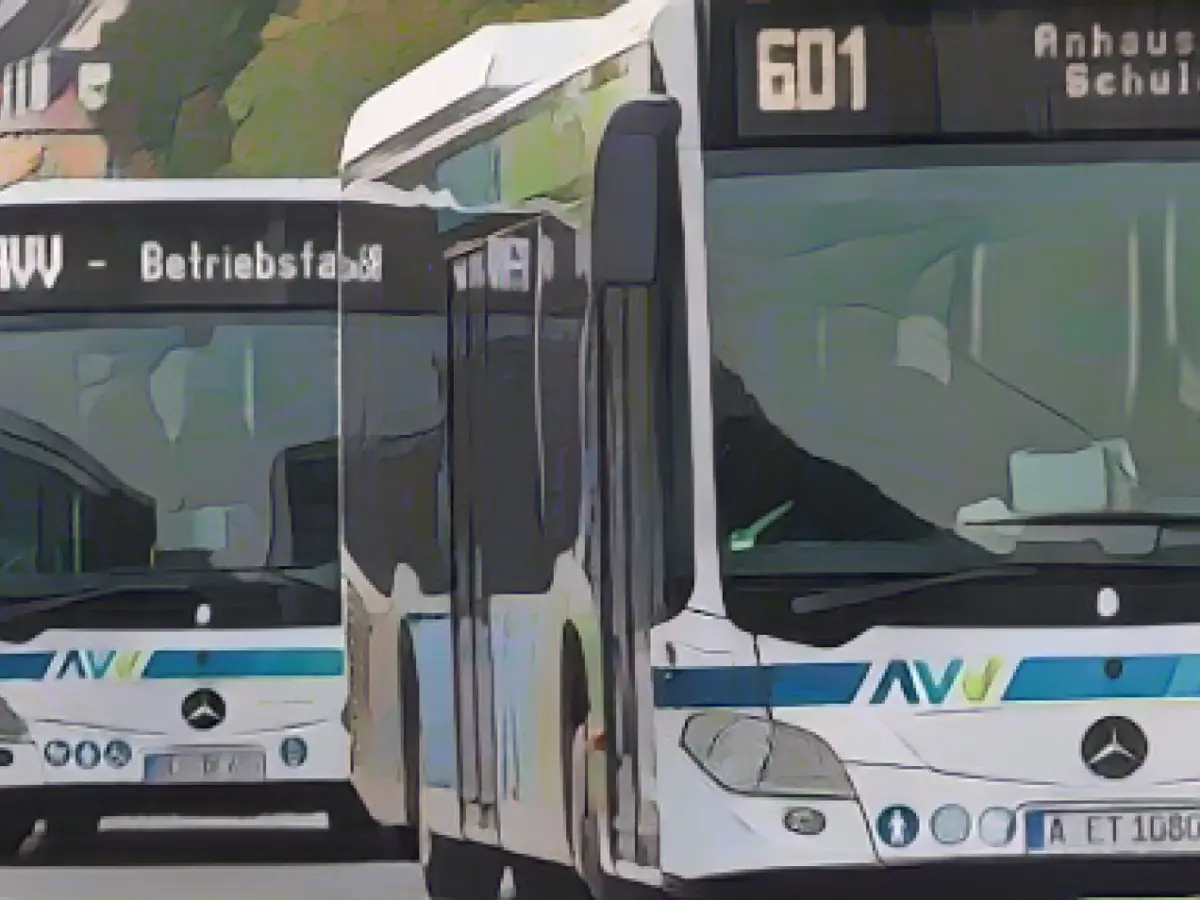🚌 Starting in the new year, public transport fares are set to surge in numerous regions across Germany, due mainly to elevated personnel and energy expenses.
Leading transportation associations, such as Verkehrsverbund Berlin-Brandenburg (VBB), Verkehrsverbund Rhein-Ruhr (VRR), and Münchner Verkehrsverbund (MVV), have announced fare hikes starting January 1. Whilst some associations, like Augsburg Transport and Tariff Association (AVV), are implementing eye-watering price increases of 12.7%, others, like the Munich Transport and Tariff Association (MVV), will only see a moderate increase of 4.3%.
The cause behind these fare increases is largely associated with the companies' rising operational and personnel expenses. Other factors include escalating fuel and energy costs, which are burdening the transport associations significantly. The excess expenses are driving the necessity for corporations to regularly adjust their fares in an attempt to offset their expenses.
One example is Verkehrsverbund Mittelthüringen (VMT) in Germany, which will not increase prices until August, due to their traditional cut-off in August. However, the increasing operational costs mean that the organization will eventually need to grapple with these expenses.
Public transportation in Germany is primarily financed through regionalization funds and passenger revenue. Despite the increasing costs, the transport companies possess only one means of compensation: increasing ticket prices. Changes in fare policies only impact the fares provided by individual associations, leaving the Deutschlandticket price unaffected for the time being.
During the coming year, there's a likeliness of a Deutschlandticket price increase. The German federal and state governments are currently aiding the transport companies with their losses incurred due to the Deutschlandticket, with an equal share allocation for operational expenses. With the amendments to the Regionalisation Act securing funding for the ticket until 2026, finances for the public transportation systems should be more secure.
🔘 Additionally, expending energy is crucial in running extensive rail networks and energy-intensive systems required by public transportation. Upgrades, maintenance of infrastructure, and new energy infrastructure, such as electric heating for guideways, increase the costs significantly.
🔘 Non-payment of funds by the federal government created challenges in funding the Deutschlandticket initially. Now, the recent amendments to the Regionalisation Act ensure coverage for the ticket until 2026. However, there still remains ongoing debate about its long-term sustainability.
🔘 Operational expenses of public transportation also include maintenance of equipment like elevators, escalators, and other infrastructure components, which are energy-intensive and can add to the total expenses.








